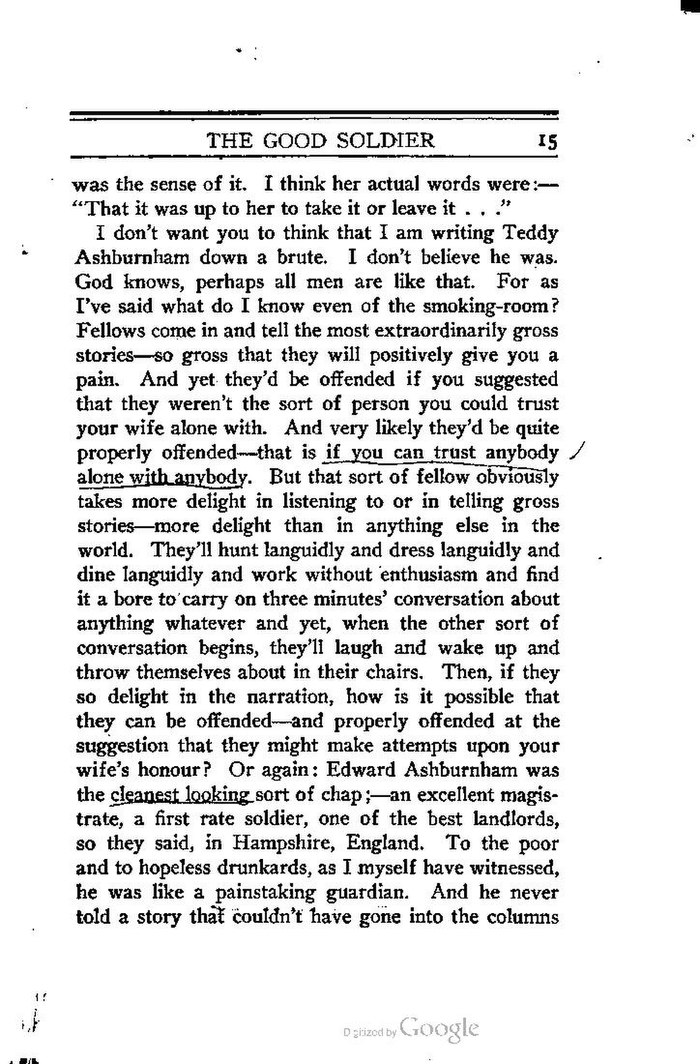was the sense of it. I think her actual words were:—"That it was up to her to take it or leave it . . ."
I don't want you to think that I am writing Teddy Ashburnham down a brute. I don't believe he was. God knows, perhaps all men are like that. For as I've said what do I know even of the smoking-room? Fellows come in and tell the most extraordinarily gross stories—so gross that they will positively give you a pain. And yet they'd be offended if you suggested that they weren't the sort of person you could trust your wife alone with. And very likely they'd be quite properly offended—that is if you can trust anybody alone with anybody. But that sort of fellow obviously takes more delight in listening to or in telling gross stories—more delight than in anything else in the world. They'll hunt languidly and dress languidly and dine languidly and work without enthusiasm and find it a bore to carry on three minutes' conversation about anything whatever and yet, when the other sort of conversation begins, they'll laugh and wake up and throw themselves about in their chairs. Then, if they so delight in the narration, how is it possible that they can be offended—and properly offended at the suggestion that they might make attempts upon your wife's honour? Or again: Edward Ashburnham was the cleanest looking sort of chap;—an excellent magistrate, a first rate soldier, one of the best landlords, so they said, in Hampshire, England. To the poor and to hopeless drunkards, as I myself have witnessed, he was like a painstaking guardian. And he never told a story that couldn't have gone into the columns
